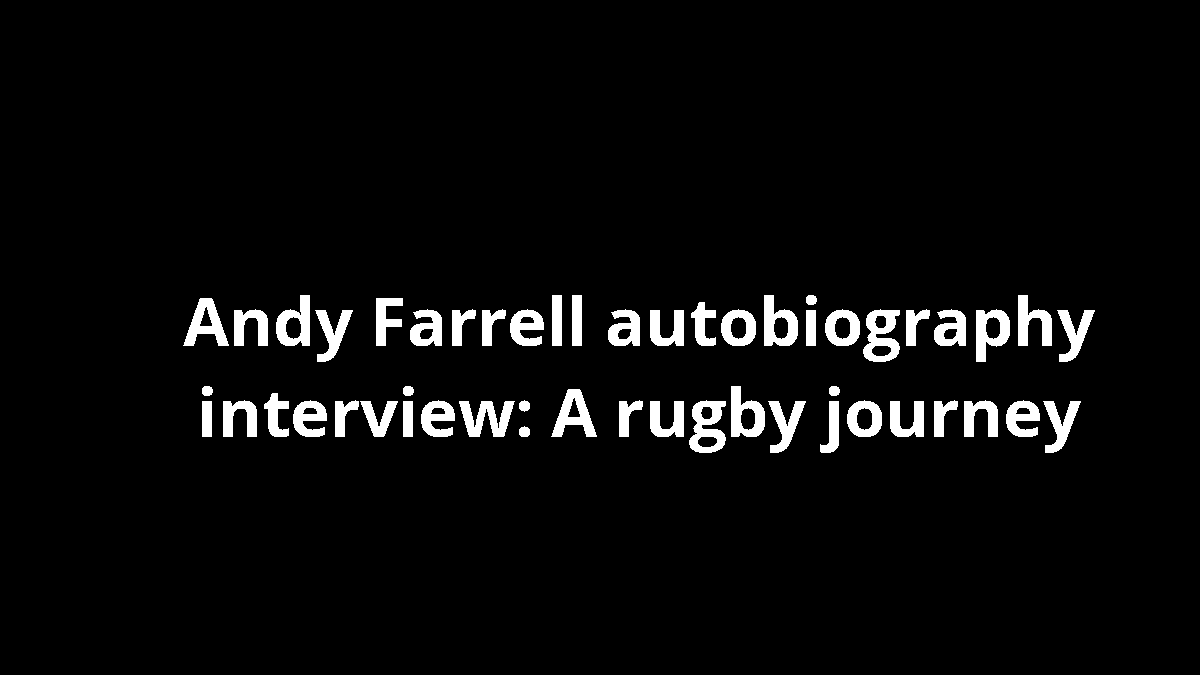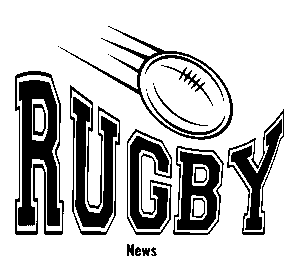Rugby Union Weekly: Farrell on Lions, Ireland, and Wigan
Andy Farrell autobiography interview offers fans a candid entry point into his long rugby journey. In this edition, Ashy and Sara sit with the former Ireland and Lions coach to unpack a career built on discipline and belief. Andy Farrell autobiography interview. In this edition, listeners hear how a young player from Wigan forged a leadership path that would shape teams across eras. The Andy Farrell autobiography interview remains a vivid map of decisions, influences, and the stubborn questions that define great coaching. The Andy Farrell autobiography interview invites readers to think about leadership as a lifelong practice, not a single moment of triumph.
Wigan roots and rugby early days
Growing up in Wigan, Farrell learned the rhythm of the game in local clubs and schoolyards. The streets taught resilience, and early coaches demanded consistency. Those days hardened a work ethic that would echo through his coaching career. The journey from amateur weekends to professional stages was not a straight line, but a series of deliberate steps. Meanwhile, the surrounding rugby culture kept pushing him forward. For broader context on Wigan’s rugby culture, see BBC Sport Rugby and World Rugby.
Lions and Ireland: the call to leadership
The challenge of Lions tours and Ireland duty defined a generation. Farrell speaks of decisions under pressure and what they reveal about a leader. The discipline learned in youth clubs translated into method under fire. He stresses the need to balance ambition with responsibility. The conversation touches on the weight of expectations and the calm required to meet them. This section connects the early days to the broader stage of international rugby. It is a reminder that leadership is earned, often through quiet consistency. The Lions and Ireland episodes are about more than results; they’re about culture. For readers seeking more on the tour ethos, BBC Sport Rugby remains a strong reference.
Andy Farrell Discusses The Only Way I Know
The focus shifts to the forthcoming autobiography, offering a concise map of the book’s themes. Andy Farrell discusses the title, The Only Way I Know, and what that line means in practice. The book promises honesty about decisions, not just success stories. This section of Rugby Union Weekly looks at how experiences shape leadership. It highlights how battles with doubt become life lessons. The conversation emphasizes that leadership is learned in many small rooms, not one grand stage. The Only Way I Know is a lens through which fans can understand the decisions that built a coaching philosophy. The Andy Farrell autobiography interview frames the ambitions behind the memoir with clear intent.
Philosophy behind The Only Way I Know
The philosophy behind The Only Way I Know centers on consistency, accountability, and care for players. Farrell explains how he translates belief into daily routines. He describes routines that reinforce trust in squads. He notes how preparation shapes performance in big moments. Every decision is weighed against the people who make up the team. The approach blends ruthlessness with empathy. The book aims to illuminate both the highs and the doubts. Attentive readers will notice how these ideas flow from his Wigan roots to Ireland and beyond.
Memoir expectations and impact on rugby culture
Readers will find candid chapters about formative mentors, rivalries, and turning points. The memoir is not only a career timeline; it is a guide to leadership under pressure. The book promises practical leadership lessons for coaches and players alike. It also looks at modern rugby’s evolution, including tactics, player welfare, and media expectations. The interview underscores that the memoir will be more than anecdotes. It will offer a framework for understanding long-term impact on rugby culture. For further context on the era, World Rugby insights can provide broader perspective.
Wigan Reunion: Two Famous Sons Share a Special Podcast
The podcast presents a rare reunion of Wigan’s famous rugby lineage. The conversation bridges generations and showcases how family ties shape perspectives. The dynamic between two iconic sons offers listeners a sense of continuity and change. The Andy Farrell autobiography interview returns here as a reference point for how personal history informs public leadership. The episode also explores the role of family in professional life, a theme that resonates across many sports families. The reunion is a window into how tradition and modern demands intersect in elite rugby.
The podcast format and guests
Hosts guide a candid, informal conversation that still probes for meaningful insights. The format blends storytelling with analysis, making complex issues approachable. Guests share memories, lessons, and the pressures of living up to legacies. This setup helps fans understand how a coach’s voice translates onto the field. It also highlight the influence of siblings and cousins who pursued the sport. The format encourages listeners to consider the human side of rugby leadership. See also how the format is used on BBC Sport Rugby.
Reunion moments and fan reaction
Fans react with nostalgia and curiosity. The podcast reveals moments of humor, humility, and competitive fire. People reflect on how much has changed since the early days in Wigan. At the same time, the core values endure: resilience, teamwork, and a front-foot approach in adversity. The dialogue demonstrates how public roles intersect with private memories. The episode also prompts discussions about whether such reunions influence current teams. The resonance is clear in social media and rugby forums alike.
Owen Farrell and the Farrell Family Legacy
The focus shifts to the next generation, led by Owen Farrell and other members of the family. The Farrells’ influence on rugby culture spans clubs, counties, and national teams. Owen’s role in shaping current playstyles and leadership models is explored. The Andy Farrell autobiography interview provides context for how family experience translates into coaching philosophy. The conversation frames a legacy that is both rooted in Wigan and expanded across Europe. This section considers how family history informs the sport’s present and future. The dialogue emphasizes continuity, mentorship, and the responsibility of passing knowledge to younger players.
Owen Farrell’s role in the legacy
Owen’s leadership on the field mirrors some of the traits discussed in the memoir. He embodies intensity, precision, and accountability. The dynamic between father and son offers a lens into rugby’s generational dialogue. Their relationship illustrates how values persist through different formats of the game. The piece reflects on how a family identity can lift teams, while also introducing expectations that shape careers. Readers will appreciate the emphasis on continuity and growth within a single rugby lineage.
Emerging leadership in a new generation
As the sport evolves, the Farrell family remains central to the discussion on leadership. The article highlights how newer players absorb lessons from established mentors. The ambition is clear: sustain success while adapting to changing tactics and welfare standards. The memoir’s insights echo in Owen’s conduct and the broader development programs around international rugby. Ultimately, the narrative celebrates a living legacy that continues to influence games at every level. The ongoing conversation across clubs and national teams underscores how leadership endures, even as the players change.
Inside Rugby Union Weekly: Behind the Episode
Behind the episode, the editors reveal how content is shaped for rugby fans worldwide. The show balances historical context with current events, making it relevant for new fans and long-time followers. The Andy Farrell autobiography interview serves as a touchstone for discussing personal influence on tactical trends. The hosts weave in data, anecdotes, and strategic analysis to create a compelling listening experience. This segment also addresses the role of media in modern rugby storytelling, including how memoirs are marketed and received by fans. Overall, the episode illustrates how a well-curated podcast can deepen understanding of a coach’s philosophy and impact. For ongoing rugby coverage, you can rely on trusted sources like BBC Sport Rugby and World Rugby.
Storycraft and sourcing in rugby podcasts
Storytelling in rugby podcasts requires careful sourcing and respectful language. The best episodes combine voice, context, and accuracy. They avoid sensationalism while delivering depth. The Andy Farrell autobiography interview provides a blueprint for authentic narration. Listeners gain a richer sense of the sport’s history and future directions. The editors emphasize clarity and credibility, ensuring the audience remains engaged while learning something new about leadership and strategy.
From tape to transcription: audience value
Transcripts and summaries extend reach beyond audio. They help fans search for key moments and quotes. The show’s design aims to maximize accessibility, without diluting nuance. The result is a resource that serves players, coaches, students of the game, and casual fans alike. The ongoing dialogue around leadership, discipline, and team culture keeps rugby conversations vibrant across platforms. The synergy between the memoir talk and on-field philosophy reinforces rugby’s enduring appeal.


